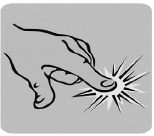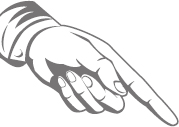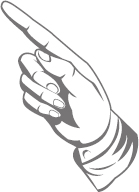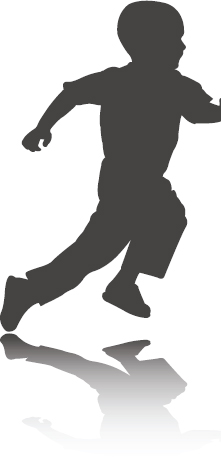
LET'S BEGIN AT THE BEGINNING, the foundation for everything else. Well . . . let's try, at least. Before we look at living and loving, creating and crying, sex and death, family and government, let's see if we can get a bead on reality, existence, truth—the substrate from which everything forms. This topic always ungrounds me. My head spins. How do I know anything? How would I know even if I did happen to know something? How am I managing to make the slightest bit of sense out of the chaotic jumble of atoms (or whatever) that (I think) surrounds me? Do I even exist? If you think I'm exaggerating, pollinate your brain with the following barrage of thoughts and observations from chemists, physicists, philosophers, poets, sages, magical realist writers, and other reality hackers. Who needs psychedelics to get to altered states?
The opposite of a true statement is a false statement, but the opposite of a profound truth may well be another profound truth.
We don't see things as they are, we see them as we are.
Reality is frequently inaccurate.

Since the initial publication of the chart of the electromagnetic spectrum, humans have learned that what they can touch, smell, see, and hear is less than one-millionth of reality.
—R. Buckminster Fuller
Civilised life, you know, is based on a huge number of illusions in which we all collaborate willingly. The trouble is we forget after a while that they are illusions, and we are deeply shocked when reality is torn down around us.
Everything we see hides another thing; we always want to see what is hidden by what we see.
Everybody gets so much information all day long that they lose their common sense.
A hallucination is a species of reality.
Outside is pure energy and colorless substance. All of the rest happens through the mechanism of our senses. Our eyes see just a small fraction of the light in the world. It is a trick to make a colored world, which does not exist outside of human beings.
If the doors of perception were cleansed, everything would appear to man as it is: infinite.
We are more closely connected to the invisible than to the visible.
Reality is nothing but a collective hunch.
—Lily Tomlin and Jane Wagner

Our normal waking consciousness, rational consciousness as we call it, is but one special type of consciousness, whilst all about it, parted from it by the filmiest of screens, there lie potential forms of consciousness entirely different. We may go through life without suspecting their existence; but apply the requisite stimulus, and at a touch they are there in all their completeness. . . . They forbid a premature closing of our accounts with reality.
It is inconceivable that anything should be existing.
In studying the literature connected with my work, I became aware of the great universal significance of visionary experience. It plays a dominant role, not only in mysticism and the history of religion, but also in the creative process in art, literature, and science. More recent investigations have shown that many persons also have visionary experiences in daily life, though most of us fail to recognize their meaning and value. Mystical experiences, like those that marked my childhood, are apparently far from rare.
About half of the U.S. public (49%) says they have had a religious or mystical experience, defined as a “moment of sudden religious insight or awakening.” This is similar to a survey conducted in 2006 but much higher than in surveys conducted in 1976 and 1994, and more than twice as high as in a 1962 Gallup survey (22%). In fact, the 2009 Pew Forum survey finds that religious and mystical experiences are more common today among those who are unaffiliated with any particular religion (30%) than they were in the 1960s among the public as a whole (22%).
Attachment is the great fabricator of illusions; reality can be attained only by someone who is detached.
We need to take dreams more literally, and waking life more symbolically.
Paranoia is having all the facts.
——Edmund White, paraphrasing and summarizing
William S. Burroughs
Our conscious motivations, ideas, and beliefs are a blend of false information, biases, irrational passions, rationalizations, prejudices, in which morsels of truth swim around and give the reassurance, albeit false, that the whole mixture is real and true. The thinking process attempts to organize this whole cesspool of illusions according to the laws of logic and plausibility. This level of consciousness is supposed to reflect reality; it is the map we use for organizing our life.
What was once called the objective world is a sort of Rorschach ink blot, into which each culture, each type of personality, reads a meaning only remotely derived from the shape and color of the blot itself.
Fact explains nothing. On the contrary, it is fact that requires explanation.
Reality is not always probable, or likely.
Of course, sometimes it's quite difficult to know if you're hallucinating. You might hallucinate a silver pen on your desk right now and never suspect it's not real—because its presence is plausible. It's easy to spot a hallucination only when it's bizarre. For all we know, we hallucinate all the time.
Questions confine answers. When there are no longer questions, answers are no longer bound by them.
The days of thinking of time as a river—evenly flowing, always advancing—are over. Time perception, just like vision, is a construction of the brain and is shockingly easy to manipulate experimentally.
A person has all sorts of lags built into him. . . . One, the most basic, is the sensory lag, the lag between the time your senses receive something and you are able to react. . . . We are always acting on what just finished happening. It happened at least one-thirtieth of a second ago. We think we're in the present, but we aren't. The present we know is only a movie of what happened in the past.
The difference between a gun and a tree is a difference of tempo. The tree explodes every spring.
Every act of perception is to some degree an act of creation, and every act of memory is to some degree an act of imagination.
—Gerard M. Edelman
Memory is a complicated thing, a relative to truth, but not its twin.
We tend to think of memories as monuments we once forged and may find intact beneath the weedy growth of years. But, in a real sense, memories are tied to and describe the present. Formed in an idiosyncratic way when they happened, they're also true to the moment of recall, including how you feel, all you've experienced, and new values, passions, and vulnerability. One never steps into the same stream of consciousness twice.
When we try to pick out anything by itself, we find it hitched to everything else in the universe.
All our previous positions are now exposed as absurd. But people don't draw the obvious conclusion: it must also mean then that our present situation is absurd.
There is another world, but it is in this one.
All our separate fictions add up to joint reality.
Everything you've learned in school as obvious becomes less and less obvious as you begin to study the universe. For example, there are no solids in the universe. There's not even a suggestion of a solid. There are no absolute continuums. There are no surfaces. There are no straight lines.
Everything we call real is made of things that cannot be regarded as real.
Once upon a time, I, Chuang Chou, dreamt I was a butterfly, fluttering hither and thither, to all intents and purposes a butterfly. I was conscious only of my happiness as a butterfly, unaware that I was Chou. Soon I awaked, and there I was, veritably myself again. Now I do not know whether I was then a man dreaming I was a butterfly, or whether I am now a butterfly, dreaming I am a man.
Beware the stories you read or tell: subtly, at night, beneath the waters of consciousness,
they are altering your world.
The media landscape of the present day is a map in search of a territory.
A huge percentage of the stuff that I tend to be automatically certain of is, it turns out, totally wrong and deluded.
A physicist is an atom's way of knowing about atoms.

Einstein's space is no closer to reality than Van Gogh's sky. The glory of science is not in a truth more absolute than the truth of Bach or Tolstoy, but in the act of creation itself. The scientist's discoveries impose his own order on chaos, as the composer or painter imposes his; an order that always refers to limited aspects of reality, and is based on the observer's frame of reference, which differs from period to period as a Rembrandt nude differs from a nude by Manet.
I think that only daring speculation can lead us further and not accumulation of facts.
Orthodoxy can be as stubborn in science as in religion. I do not know how to shake it except by vigorous imagination that inspires unconventional work and contains within itself an elevated potential for inspired error. As the great Italian economist Vilfredo Pareto wrote: “Give me a fruitful error any time, full of seeds, bursting with its own corrections. You can keep your sterile truth for yourself.” Not to mention a man named Thomas Henry Huxley who, when not in the throes of grief or the wars of parson hunting, argued that “irrationally held truths may be more harmful than reasoned errors.”
The supernatural is the natural not yet understood.
When you sit in a chair, you are not actually sitting there, but levitating above it at a height of one angstrom (a hundred millionth of a centimeter), your electrons and its electrons implacably opposed to any closer intimacy.
Briefly, you can only find truth with logic if you have already found truth without it.
Things are symbols of themselves.

I can't understand why people are
frightened of new ideas. I'm frightened
of the old ones.
There's no reality except the one contained within us. That's why so many people live an unreal life. They take images outside them for reality and never allow the world within them to assert itself.
You do not need to leave your room. Remain sitting at your table and listen. Do not even listen, simply wait; be quiet, still, and solitary. The world will freely offer itself to you to be unmasked. It has no choice; it will roll in ecstasy at your feet.
Don't believe everything you think.
It is the customary fate of new truths to begin as heresies and end as superstitions.
Believe those who are seeking the truth. Doubt those who find it.
—André Gide

Why abandon a belief
Merely because it ceases to be true.
Cling to it long enough, and not a doubt
It will turn true again, for so it goes.
Most of the change we think we see in life
Is due to truths being in and out of favour.
You shall know the truth, and the truth shall make you mad.
Your brain, after all, is encased in darkness and silence in the vault of the skull. Its only contact with the outside world is via the electrical signals exiting and entering along the super-highways of nerve bundles. Because different types of sensory information (hearing, seeing, touch, and so on) are processed at different speeds by different neural architectures, your brain faces an enormous challenge: what is the best story that can be constructed about the outside world?
Our brains permit us to use such a wee fraction of their resources that, in a sense, everything we experience is a reduction. We employ drugs, yoga techniques and poetics—and a thousand more clumsy methods—in an effort just to bring things back up to normal.
It's in our biology to trust what we see with our eyes. This makes living in a carefully
edited,
overproduced,
and Photoshopped
world very dangerous.
According to the psychologist Robert Feldman, who has spent more than four decades studying the phenomenon, we lie, on average, three times during a routine ten-minute conversation with a stranger or casual acquaintance.
Tell the truth and run.

All generalizations are false, including this one.
The truth knocks on the door and you say, “Go away, I'm looking for the truth,” and so it goes away. Puzzling.
You must accept the truth from whatever source it comes.
I really believe in history, and that's something people don't believe in anymore. I know that what we do and think is a historical creation. I have very few beliefs, but this is certainly a real belief: that most everything we think of as natural is historical and has roots—specifically in the late eighteenth and early nineteenth centuries, the so-called Romantic revolutionary period—and we're essentially still dealing with expectations and feelings that were formulated at that time, like ideas about happiness, individuality, radical social change, and pleasure. We were given a vocabulary that came into existence at a particular historical moment.
I never can feel certain of any truth but from a clear perception of its beauty.
Facts do not exist, only interpretations.
Humor is what happens when we're told the truth quicker and more directly than we're used to.
Tell all the Truth but tell it slant—
The truth does not change according to our ability to stomach it.
How many ideas have there been in the history of the human race that were unthinkable ten years before they appeared?
Man is least himself when he talks in his own person Give him a mask, and he will tell you the truth.
Truth is a pathless land.
